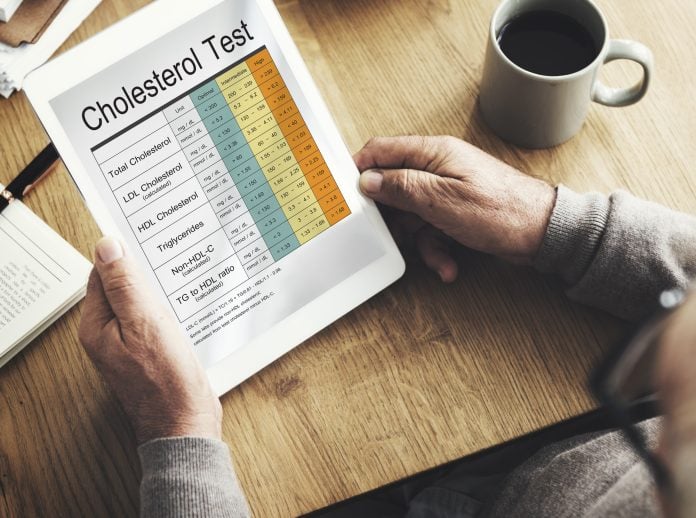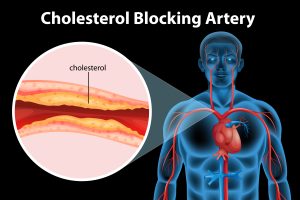
This post may contain affiliate content from which we earn a small commission at no additional cost to you. Read our full disclosure.
Ever wondered if shedding those extra pounds could be a game-changer for your cholesterol levels? Can your journey to a lighter you also lead to a healthier heart? The question lingering in many minds is, “Will weight loss lower cholesterol?”
Let’s embark on a straightforward exploration of this query, unraveling the potential link between losing weight and bidding adieu to high cholesterol. Let’s dive in!
Understanding Cholesterol

Cholesterol, a crucial substance in the body, is categorized into low-density lipoprotein (LDL) and high-density lipoprotein (HDL). LDL, termed ‘bad’ cholesterol, can lead to artery plaque buildup, increasing cardiovascular risks. In contrast, HDL, the ‘good’ cholesterol, removes excess LDL, safeguarding heart health.
Beyond its role in cardiovascular function, cholesterol serves as a building block for hormones and aids digestion. Achieving a balance between LDL and HDL is vital for well-being. Weight loss, coupled with a healthy lifestyle, positively impacts cholesterol levels, emphasizing the importance of a holistic approach to cardiovascular wellness.
The Weight Loss Conundrum
Obesity has long been identified as a risk factor for various health issues, including high cholesterol levels. The relationship is intricate, with excess body fat impacting cholesterol metabolism.
When individuals embark on a weight loss journey, they are essentially aiming to reduce the adipose tissue, which might positively influence their cholesterol profile.
Will Weight Loss Lower Cholesterol?
One of the primary concerns in managing cholesterol is lowering LDL levels. Studies have shown that weight loss can indeed lead to a reduction in LDL cholesterol. Fat loss is directly linked to a decrease in LDL levels, as the body mobilizes stored fat for energy during periods of caloric deficit. This not only aids in weight loss but also contributes to a healthier lipid profile.
Impact on Triglycerides
Triglycerides, another type of fat in the blood, are influenced by weight loss as well. Excessive calorie intake, especially from carbohydrates, can elevate triglyceride levels. Weight loss, particularly when accompanied by dietary modifications, can contribute to a decrease in triglycerides.
This highlights the multifaceted benefits of a holistic approach to weight management.
HDL Cholesterol and Physical Activity
While weight loss can positively affect LDL and triglyceride levels, its impact on HDL cholesterol is intriguing. Regular physical activity, often a component of weight loss strategies, has been associated with an increase in HDL cholesterol.
Engaging in aerobic exercises prompts the body to produce more HDL, promoting a healthier balance between good and bad cholesterol.
Body Composition Matters
Weight loss isn’t solely about shedding pounds on the scale; it also involves altering body composition. A focus on preserving lean muscle mass during weight loss is crucial.
Muscle tissue is metabolically active and can contribute to sustained weight management. Moreover, a higher muscle-to-fat ratio may positively influence cholesterol levels, underlining the importance of a comprehensive approach to weight loss.
Dietary Influences on Cholesterol
Weight loss isn’t only about calories in versus calories out; the quality of the diet matters significantly. Adopting a heart-healthy diet during weight loss can enhance its impact on cholesterol levels.
A diet rich in fruits, vegetables, whole grains, and lean proteins not only aids in weight reduction but also contributes to cholesterol management.
The Role of Genetics

While the connection between weight loss and cholesterol is established, it’s crucial to acknowledge the role of genetics. Some individuals may experience significant improvements in cholesterol levels with weight loss, while others may see modest changes.
Understanding one’s genetic predisposition can help tailor weight loss strategies for optimal health outcomes.
Therefore, shedding those extra pounds can potentially be a cause of loose skin. If you’re curious about the broader relations of weight loss, you might find more insights in our article on “How Much Weight Loss Causes Loose Skin?”
How to lower cholesterol
Initiating or sustaining a moderate weight stands as the initial measure for individuals aiming to reduce cholesterol. Attaining a moderate weight contributes to the reduction of triglycerides in the liver, consequently diminishing the production of cholesterol.
Medical practitioners may also recommend a specific class of medications called statins to mitigate cholesterol levels. Statins represent the most frequently prescribed drugs for cholesterol reduction.
Tips for losing weight
Individuals who are overweight or suffer from obesity can take steps to lower their blood cholesterol levels by achieving a moderate weight. Here are some effective strategies:
- Embrace a well-rounded diet: Opt for a diet rich in fiber, fresh fruits, vegetables, whole grains, nuts, fish, and lean meats.
- Restrict cholesterol-raising foods: Steer clear of processed and fried foods, excessive sugar, and saturated fats.
- Be mindful of portion sizes: When it comes to processed foods, reducing caloric intake can be beneficial for weight management.
- Moderate alcohol consumption: Alcohol is calorie-dense, and studies link its intake to weight gain. Limiting alcohol can contribute to weight control.
- Amp up physical activity: Following the American Heart Association’s recommendation of 150 minutes of moderate-intensity aerobic exercise, such as brisk walking, swimming, or cycling, can aid in weight management and overall health.
Beyond Body – The Ultimate Weight Loss Companion
Beyond Body stands out with personalized meal and exercise plans, tailored to individual preferences and goals. The app’s 28-day customized meal plan turns healthy eating into an enjoyable adventure. It’s not just a weight loss journey but a personalized guide to a healthier and more fulfilling life.
Weight loss is closely linked to lower cholesterol levels, particularly reducing LDL (“bad” cholesterol). Shedding excess pounds through diet and exercise positively influences cholesterol profiles. Maintaining a healthy weight is key to a holistic approach in managing cholesterol and cardiovascular health.
That said, if you’re interested in trying this app read our full Beyond Body review then click here to take a quick quiz and get started. You can even get up to 60% off by using the code below:


Beyond Body - 67% Off Discount Code
Final Words
So, will weight loss lower cholesterol?
In the journey to lower cholesterol, shedding those extra pounds can be a helpful companion. Weight loss tends to give cholesterol a nudge in the right direction. It’s like having a superhero sidekick – not the main hero, but definitely lending a hand.
So, lace up those metaphorical superhero boots and let weight loss be your cholesterol’s trusty ally on the path to better health.
- Online Vs In-Person Certification Courses: Pros & Cons - April 23, 2024
- Tips for Acing Your Fitness Certification Exam - April 21, 2024
- Balancing Work-Life as a Fitness Trainer: Complete Guide - April 19, 2024
Disclosure: In the spirit of full disclosure, DIYactive.com may be compensated in exchange for featured placement of certain reviews or links on this website. View our full disclosure.



